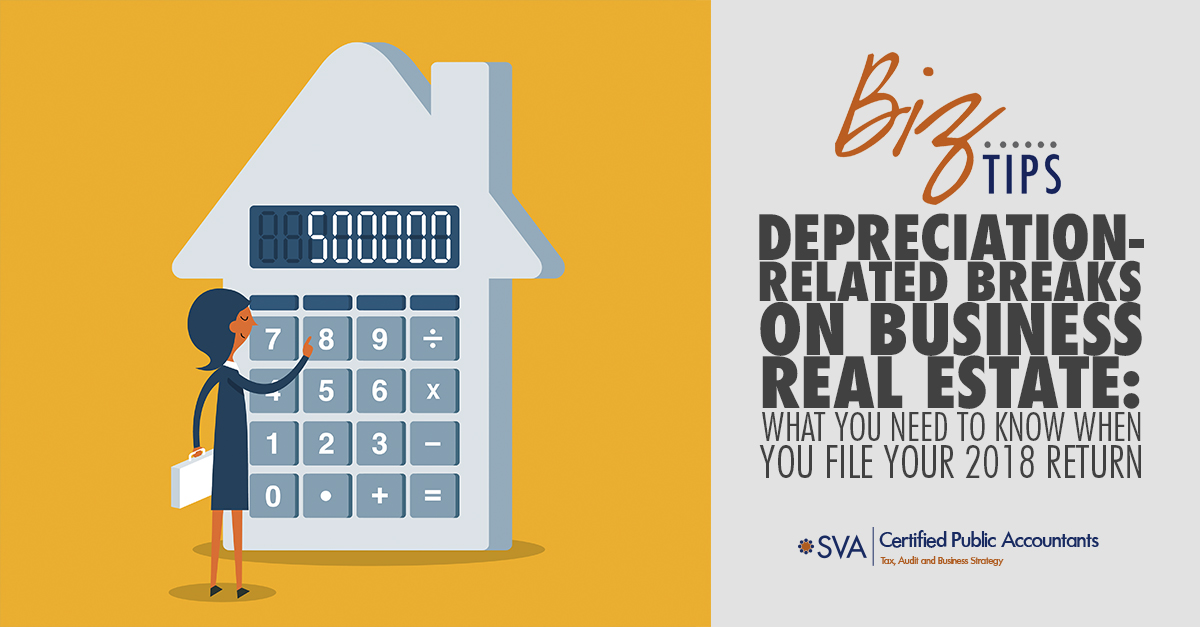Commercial buildings and improvements generally are depreciated over 39 years, which essentially means you can deduct a portion of the cost every year over the depreciation period. (Land isn’t depreciable.) But special tax breaks that allow deductions to be taken more quickly are available for certain real estate investments.
Some of these were enhanced by the Tax Cuts and Jobs Act (TCJA) and may provide a bigger benefit when you file your 2018 tax return. But there are two breaks you might not be able to enjoy due to a drafting error in the TCJA.
Section 179 expensing
This allows you to deduct (rather than depreciate over a number of years) qualified improvement property — a definition expanded by the TCJA from qualified leasehold-improvement, restaurant and retail-improvement property. The TCJA also allows Sec. 179 expensing for certain depreciable tangible personal property used predominantly to furnish lodging and for the following improvements to nonresidential real property: roofs, HVAC equipment, fire protection and alarm systems, and security systems.
Under the TCJA, for qualifying property placed in service in tax years starting in 2018, the expensing limit increases to $1 million (from $510,000 for 2017), subject to a phaseout if your qualified asset purchases for the year exceed $2.5 million (compared to $2.03 million for 2017). These amounts will be adjusted annually for inflation, and for 2019 they’re $1.02 million and $2.55 million, respectively.
Accelerated depreciation
This break historically allowed a shortened recovery period of 15 years for property that qualified. Before the TCJA, the break was available for qualified leasehold-improvement, restaurant and retail-improvement property. Again, the TCJA expanded the definition to “qualified improvement property.”
But, due to a drafting error, no recovery period was given to such property, so it defaults to 39-year property. For accelerated depreciation to be available for qualified improvement property, a technical correction must be issued.
Bonus depreciation
This additional first-year depreciation allowance is available for qualified assets, which before the TCJA included qualified improvement property. But due to the drafting error noted above, qualified improvement property will be eligible for bonus depreciation only if a technical correction is issued.
When available, bonus depreciation is increased to 100% (up from 50%) for qualified property placed in service after Sept. 27, 2017, but before Jan. 1, 2023. For 2023 through 2026, bonus depreciation is scheduled to be gradually reduced. Warning: Under the TCJA, real estate businesses that elect to deduct 100% of their business interest will be ineligible for bonus depreciation starting in 2018.
Can you benefit?
Although the enhanced depreciation-related breaks may offer substantial savings on your 2018 tax bill, it’s possible they won’t prove beneficial over the long term. Taking these deductions now means forgoing deductions that could otherwise be taken later, over a period of years under normal depreciation schedules. In some situations — such as if in the future your business could be in a higher tax bracket or tax rates go up — the normal depreciation deductions could be more valuable long-term.
For more information on these breaks or advice on whether you should take advantage of them, please contact us.
© 2019

